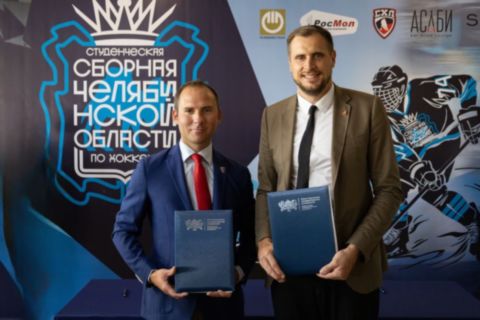A cooperation agreement between the Ministry of Physical Education and Sports for the Chelyabinsk Region and the Student Ice Hockey League was signed as part of the Youth Ice Hockey Cup. The document outlines plans for developing student ice hockey in our region, supporting young athletes, and organizing new tournaments.
Student Ice Hockey League Managing Director Anton Khramtsov emphasized the importance of this cooperation:
“Today we have signed a very important document, since the Chelyabinsk Region is one of our key regions in the development of student ice hockey. Our joint work facilitates further strengthening of this sport in our region, including holding joint events and tournaments. Our main goal is to create conditions for its growth across Russia.”
The Minister of Physical Education and Sports for the Chelyabinsk Region Vladimir Ivanov noted:
“The Chelyabinsk Region is rightfully considered to be an ice hockey region, as this type of sport is our signature feature. This is confirmed by the success of the student teams representing our leading universities at the highest level in the Student Ice Hockey League. The agreement we have signed will provide a powerful incentive for the development of student ice hockey, strengthen cooperation between universities, and, of course, provide additional support for student athletes.”
The agreement is aimed at supporting and developing student ice hockey in our region. The Chelyabinsk Region is represented in the Student Ice Hockey League Championship by four teams (three universities and one vocational school), making it the largest representation of teams in the league from a single region.
Also, the SUSU Polytechnic ice hockey team has been participating in competitions for 76 years now, without interruption for a single season since 1949.
The signing of the agreement will enable the implementation of a student ice hockey development program in our region, attract other universities to participate in Student Ice Hockey League events, utilize the infrastructure of regional institutions, and receive additional support from our region’s authorities.




